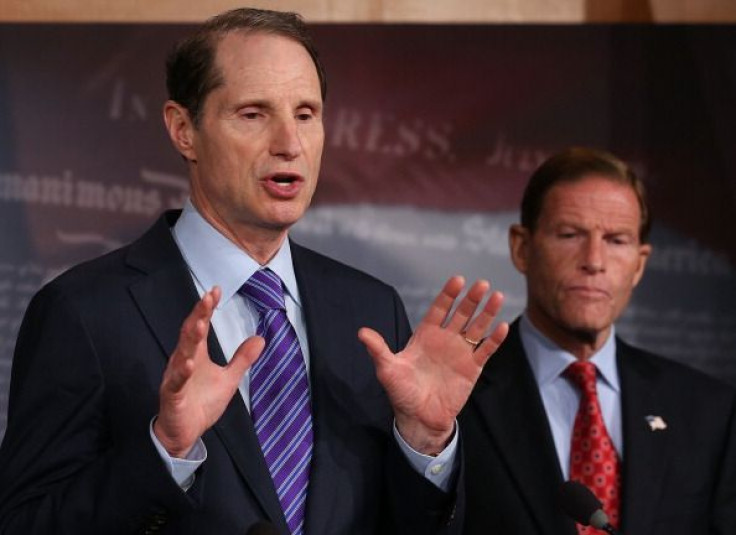NSA FISA Surveillance: Sen. Ron Wyden Warns Of Sneaky Opposition To Surveillance Reform

Several months after National Security Agency contractor Edward Snowden revealed the government’s mass surveillance program, Congress is about to enter a new phase of response: reform. But Sen. Ron Wyden, D-Ore., a harsh critic of the intelligence agency's tactics, warned on Wednesday that the reform effort is entering a make-or-break period.
As Congress begins to take up a number of bills put forward to reform the NSA’s surveillance program and the agency's authority, Wyden warned that a powerful coalition of lawmakers, intelligence and administration officials and sympathetic think tanks, what he called the “business as usual brigade,” would try to undermine the effort.
Wyden, speaking at an all-day event at the libertarian Cato Institute in Washington, described his own reform legislation, put forward several weeks ago, which would end the bulk data collection program and create a robust role for a special advocate at the Foreign Intelligence Surveillance Court. As the Senate Intelligence Committee, on which Wyden serves, takes up a surveillance reform bill in the coming weeks, Wyden warned that reform must be real but that the “business as usual” coalition would try to push reforms that are only “skin deep.”
Wyden laid out a number of ways that the reform effort in Congress could be stymied by those seeking to preserve the status quo. Most notably, he fears an attempt to codify the controversial programs. In other words, rather than stretching the existing language of the USA Patriot Act to justify legally collecting bulk information on American citizens, he predicted a push to explicitly write these programs into the law.
Rather than end or scale back bulk collection under Section 215 of the Patriot Act, Wyden fears that codifying the program would make bulk collection more permanent. He also argued that once Congress explicitly approved bulk collection of phone records, it would open the door further to the bulk collection of all other types of records, from medical records to gun purchases. This would “usher in a new era of digital surveillance,” he said.
Wyden also warned that those who oppose reform will nonetheless adopt the “language of reform” and declare that they are “open to considering” changes to the government’s surveillance authorities. But behind the scenes, Wyden said, “make no mistake about it, they’re going to be working very hard to preserve the existing authority.”
© Copyright IBTimes 2024. All rights reserved.












